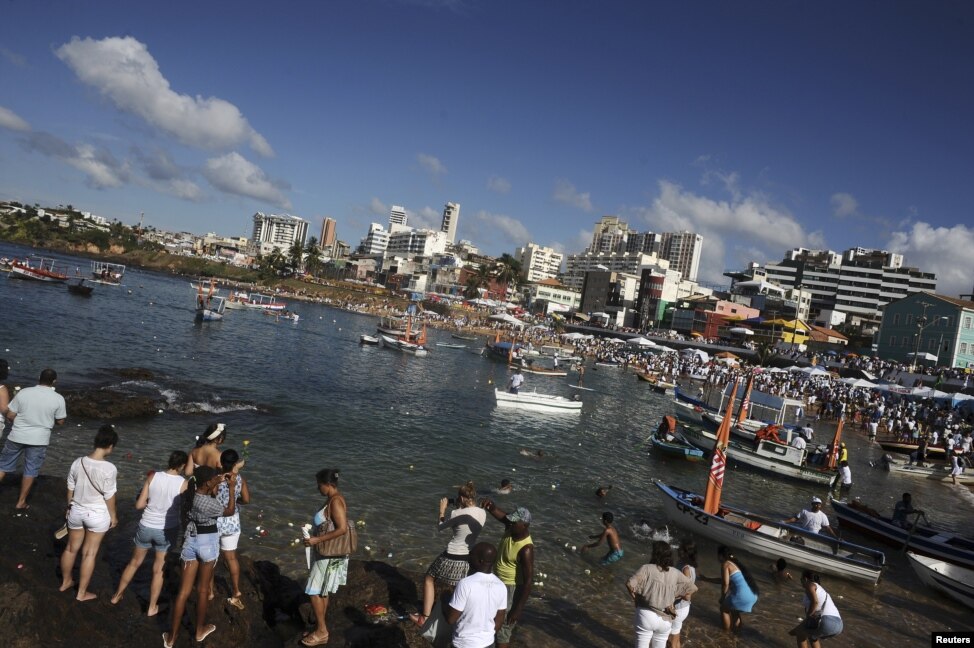Brazil pays tribute to Iemanja, goddess of the sea
-

Tens of thousands of people across Brazil on Saturday paid their annual tribute to Iemanja, the goddess of the sea in the Afro-Brazilian religion Candomble, offering flowers, food and perfume, as drums belted out African rhythms
The Iemanja festival is hugely popular across this racially diverse country of 194 million, especially in the northeast state of Bahia, the heart of Afro-Brazilian culture.
In Bahia state's capital city Salvador, where 80 percent of its 2.7 million people are of African descent, television pictures showed thousands of devotees patiently lining up on the city's Rio Vermelho beach.
Clad in white with bright colorful necklaces, they waited to board small fishing boats to be taken out to sea to release their flower offerings.
Other gifts put in large baskets and set adrift include rice, but also perfumes, jewelry, combs, lipstick and mirrors, as the venerated Iemanja is reputed to be quite vain.
Salvador's Iemanja festival in its current form, always held on February 2, was first celebrated in the Rio Vermelho district in 1923, when 25 fishermen who were practitioners of Candomble implored the goddess to end a shortage of fish in coastal waters.
In Rio, where the tradition is also very strong, devotees, including turbaned followers of the popular Filhos de Gandhi (Sons of Gandhi) samba group in their trademark blue and white costumes, paraded through the city center.
They carried sumptuous baskets of white flowers to a ferry from which they dropped the offerings into Guanabara bay.
They also exchanged fruits and doused themselves with perfume for purification, in line with the Candomble rite.
Founded in 1949 by striking Salvador dockworkers, Filhos de Gandhi was inspired by Mohandas Gandhi's philosophy of equality and nonviolent resistance to oppression.
The group, which plays a Candomble-derived style of music called afoxe, is also to perform during the Rio Carnival on February 10.
Brought to Brazil in the 16th century by west African slaves, the cult of Iemanja, which is mainly steeped in Yoruba culture, is celebrated elsewhere across Latin America, including Cuba, Uruguay, Argentina, Colombia, Venezuela and Panama.


